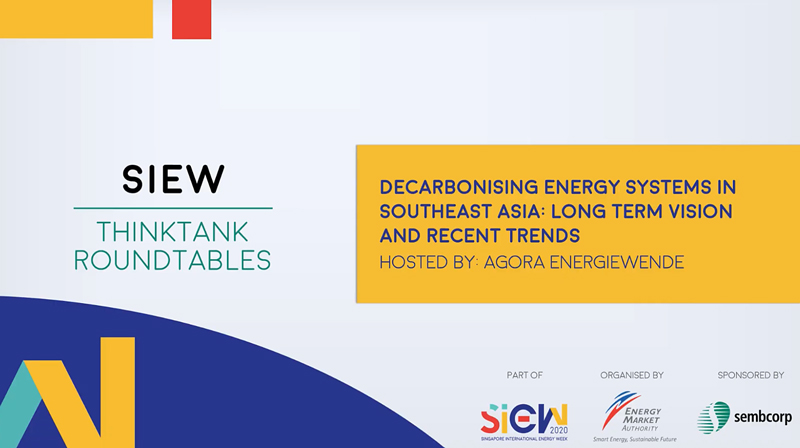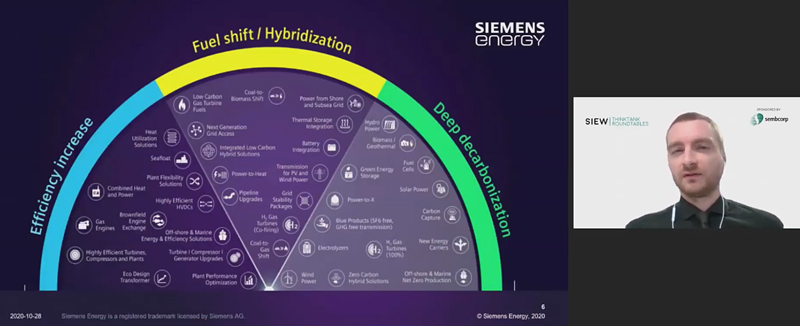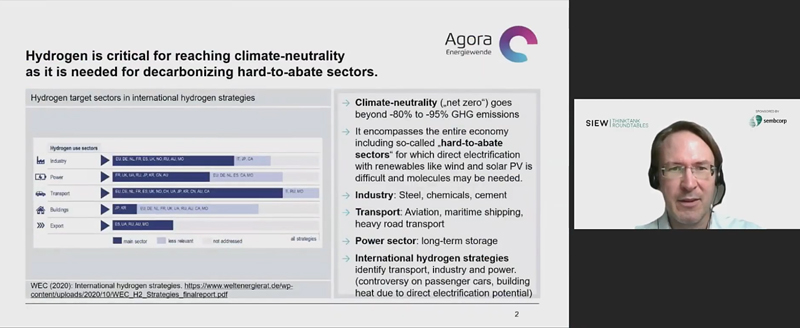At SIEW Thinktank Roundtable G, Agora Energiewende brought together thought leaders and researchers from across ASEAN to discuss the emerging opportunities for decarbonisation.

Along with cheaper variable renewable energy (VRE), the growing electrification of various sectors presents a unique opportunity for clean energy transition. Senior executives from Agora Energiewende and regional organisations discussed the current momentum at the SIEW Thinktank Roundtable G.
Renewables gaining strides across the region
The first part of the Roundtable saw speakers from the ASEAN region providing their insights into the energy policy trends, developments, and opportunities in their respective countries.
Vietnam: To Nhien Ngo, Director of Vietnam Initiative for Energy Transition, highlighted how renewable energy development is gaining momentum in Vietnam—with an eye cast on offshore wind energy as the dominant source by 2030. However, she cautioned the need for careful consideration during the transition, such as ensuring synchronisation between the supply and transmission systems.
The Philippines: Alberto Dalusung, Power Expert of Institute for Climate and Sustainable Cities, spoke on building more flexibility into the energy grid through implementing initiatives such as ‘One Grid’ to interconnect the archipelago’s power transmission network and an enhanced Wholesale Electricity Spot Market (WESM) design.
Thailand: Aksornchan Chaianong, Researcher of Energy Research Institute, shared the country’s ambitions and policies to shift towards rooftop solar as the main renewable energy. In particular, she pointed out the self-consumption scheme that encouraged citizens to install their own solar PV. She also highlighted the need for a more attractive buyback rate to help the scheme gain more traction.
Indonesia: Fabby Tumiwa, Executive Director of Institute for Essential Services Reform, spoke on the government’s plan to increase the utilisation of biofuel and the electrification of transport. He also underscored the importance of addressing the existing coal capacity in a fossil fuel-rich country like Indonesia by ceasing plans for new coal power plants.
Bright outlook for hydrogen in energy transition
The next part of the Roundtable presented an outlook on the energy markets in transition, and the key challenges and opportunities around hydrogen as an alternative source.
During his keynote, Tobias Kadziela, Director Sales Operation Asia Pacific of Siemens, highlighted how multiple decarbonisation pathways can be taken to achieve energy targets:
- Improving on existing technologies that are viable and proven
- Changing the fuel mix, or hybridisation, for carbon reduction
- Deploying deep decarbonisation technologies such as electrolysers

He emphasised that the diversity of the ASEAN region meant there is no one-size-fits-all solution—and policymakers needed to find their own formula or framework to integrate renewables into the energy system.

Matthias Deutsch, Senior Associate of Agora Energiewende, touched on the value of hydrogen in decarbonising hard-to-abate sectors such as aviation and steel. However, he cautioned about the high prices and scarcity of renewable hydrogen compared to conventional solutions, as well as the need for clear policy support to bridge the cost gap.
Follow us on Twitter (@SIEW_sg) to get the latest #SIEW2020 updates throughout the day!